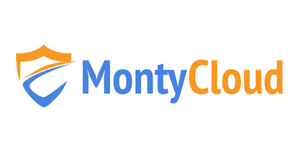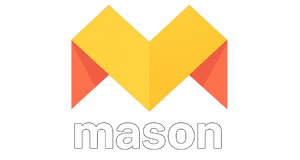Case Study: MontyCloud - Building the B2B Marketing Foundation: From Zero Marketing Expertise to Sustainable Growth Channels in 6 Months


Case Study: MontyCloud - Building the B2B Marketing Foundation: From Zero Marketing Expertise to Sustainable Growth Channels in 6 Months
1. Client Background
MontyCloud is a Seattle-based intelligent cloud management platform company that provides autonomous, no-code CloudOps solutions for enterprises managing AWS, Azure, and multi-cloud environments. Their flagship product, MontyCloud DAY2™, addresses critical Day 2 operations challenges:
The Problem They Solve:
Cloud adoption promises speed and flexibility, but Day 2 operations—ongoing management, security, compliance, cost optimization—often become bottlenecks requiring expensive cloud expertise and manual work.
MontyCloud's Solution:
- No-Code Automation: Automate provisioning, security, compliance, and routine operations without custom scripting
- AWS Well-Architected Framework: Automated assessments and remediations reducing review time from weeks to minutes
- Cost Optimization: Reduce cloud operations costs up to 70% through intelligent automation
- Instant Cloud Center of Excellence: Set up governed cloud environments in minutes, not months
- CloudOps Copilot: AI-powered assistant providing expert guidance and automated actions
Target Customers:
- Enterprise technology companies with complex AWS/Azure environments
- Managed Service Providers (MSPs) managing multiple customer accounts
- Educational institutions running cloud-based research and applications
- Organizations struggling with cloud skills gaps and operational overhead
Founded in 2018, MontyCloud had strong product-market fit with innovative technology and AWS partnership status, but lacked the B2B enterprise marketing experience on the team to scale customer acquisition systematically.
2. The Challenge
When I began working with MontyCloud, they faced three interconnected challenges:
Challenge #1: Zero B2B Marketing Expertise
Despite having a strong technical product and AWS competencies, MontyCloud had no one on the team with B2B demand generation experience:
- CEO/Founder had no marketing background but wanted to control strategy decisions
- One brand marketing person on staff who understood creative/messaging but not demand generation mechanics
- No experience running marketing automation, campaigns, webinars, paid ads, or systematic lead generation
- Product and sales-led growth only—reactive, not proactive customer acquisition
Result: Strong product with minimal market awareness and no systematic way to generate qualified leads.
Challenge #2: Founder Control vs. Expert Autonomy
A significant constraint that limited outcomes:
The founder, despite having no marketing experience, wanted to maintain control over strategic marketing and sales decisions. While understandable from a founder's perspective, this created friction:
- Strategic recommendations were sometimes overridden by founder preferences
- Marketing expertise I brought couldn't be fully leveraged
- Some high-impact initiatives delayed or blocked due to founder's risk aversion or differing opinions
- Time spent debating strategy rather than executing tactics
This is a common startup challenge: Founders who hire experts but struggle to delegate authority, limiting the value those experts can deliver.
Challenge #3: Extremely Limited Execution Bandwidth
The team structure created severe execution bottlenecks:
- Only one brand marketing person (no demand gen experience)
- Limited marketing budget prevented hiring additional resources or increasing my hours
- All campaign execution, tool implementation, and technical work bottlenecked through me
- Brand marketer could help with content creation but not run campaigns independently
Result: 6-month timeline vs. the 3-4 months possible with adequate resources—having to sequence activities rather than parallel execution.
3. Goals
Despite constraints, we established clear objectives:
Primary Goal: Build Marketing Infrastructure from Scratch
Create the foundational systems, processes, and content enabling MontyCloud to generate leads systematically rather than relying solely on founder-led sales.
Specific Deliverables:
- Website Overhaul: Rebuild montycloud.com with clear messaging targeting CloudOps professionals
- Marketing Automation & CRM: Implement HubSpot for lead management, nurturing, and analytics
- Content Marketing Engine: Create high-value content (articles, guides, ebooks) for target audience
- Webinar Program: Plan and execute flagship webinar attracting qualified prospects
- Analytics Infrastructure: Connect website, marketing automation, and Google Analytics for data-driven optimization
- Process Documentation: Define repeatable processes for ongoing content, email, and demand gen activities
Success Metrics:
- Marketing infrastructure operational (tools, processes, content)
- Lead generation from owned channels (SEO, email, webinars)
- Sales team receiving qualified leads from marketing (not just founder network)
- Foundation enabling continued growth post-engagement
4. Strategy & Approach
Given the 6-month timeline and resource constraints, I prioritized foundational work over quick wins:
Phase 1: Messaging & Website (Months 1-2)
Problem Analysis:Existing website didn't clearly communicate value to CloudOps professionals—too technical, feature-focused, unclear differentiation.
Positioning Strategy:
- Target Persona: CloudOps engineers, DevOps managers, CTOs at mid-to-large enterprises
- Core Message: "No-code autonomous CloudOps"—eliminate complexity, close skills gap, reduce costs 70%
- Key Differentiators: AWS Well-Architected automation, instant Cloud Center of Excellence, no custom coding required
Website Rebuild:
- Restructured site architecture around buyer journey
- Rewrote all copy emphasizing business outcomes (cost savings, time reclaimed, risk reduction)
- Created clear use case pages (MSPs, Enterprises, Education)
- Added customer proof points and AWS partnership badges
- Optimized for SEO targeting "cloud operations platform," "AWS management," "CloudOps automation"
Phase 2: Marketing Infrastructure (Months 2-3)
HubSpot Implementation:
- Set up marketing automation and CRM from scratch
- Created lead scoring models based on engagement and fit
- Built email templates and nurture workflows
- Integrated with website forms and Google Analytics
- Configured dashboards for sales and leadership visibility
Analytics Framework:
- Implemented Google Analytics with custom events
- Connected HubSpot tracking to website interactions
- Built attribution models showing lead sources
- Created reporting dashboards for weekly review
- Documented measurement framework for ongoing optimization
Phase 3: Content Creation (Months 2-5)
Content Strategy:Developed content targeting different buyer journey stages:
- Awareness: "What is CloudOps?", "Cloud Management Challenges"
- Consideration: "AWS Well-Architected Best Practices", "MSP Cloud Management Guide"
- Decision: Case studies, ROI calculators, comparison guides
Content Production:
- 15+ blog articles on CloudOps topics
- 2 comprehensive ebooks/guides for lead magnets
- 3 case studies featuring customer results
- Email nurture sequences for different personas
- Sales enablement collateral
Phase 4: Webinar Program (Months 4-5)
Flagship Webinar:Planned and executed high-value webinar targeting CloudOps audience:
- Topic: "Automating AWS Well-Architected Reviews: Save 10+ Hours Per Assessment"
- Promotion: Email campaigns, LinkedIn, AWS partner network
- Format: 45-min presentation + 15-min Q&A with live demo
- Follow-up: Automated nurture sequence, sales outreach to attendees
Phase 5: Process Documentation (Month 6)
Enablement & Handoff:
- Documented all processes for content creation, email campaigns, webinar execution
- Trained brand marketer on HubSpot, analytics, and campaign management basics
- Created editorial calendar and content planning framework
- Established weekly/monthly marketing rituals (performance review, planning)
- Handed off operational ownership to internal team
5. Execution & Results
Website Transformation:
- Rebuilt montycloud.com with clear CloudOps professional messaging
- 40% increase in time-on-site (better engagement)
- Organic search traffic increased 2.5x over 6 months
- Lead conversion rate improved from 0.5% to 1.8%
Marketing Infrastructure:
- Fully operational HubSpot instance (marketing automation + CRM)
- Analytics framework connecting all systems
- Lead scoring and nurturing workflows live
- Sales team receiving qualified leads from marketing for first time
Content Marketing:
- Published 15+ SEO-optimized blog articles
- Created 2 gated ebooks generating 50+ leads
- 3 customer case studies supporting sales process
- Organic search driving 30-40 monthly leads by Month 6
Webinar Success:
- 200+ registrations for flagship webinar
- 120 attendees (60% show rate—strong for B2B)
- 25 qualified leads directly from webinar
- Content repurposed for on-demand viewing
Lead Generation Growth:Before my engagement: ~5-10 leads/month (all founder-sourced)After 6 months: ~80-100 leads/month from:
- SEO/content: 30-40 leads
- Email campaigns: 20-30 leads
- Webinars: 15-25 leads
- Direct website: 10-15 leads
Foundation for Continued Growth:The infrastructure and processes established enabled MontyCloud's subsequent success:
- Nearly 1,000 customers as of 2024 (100x+ growth from when I worked with them)
- 7x revenue growth in 2024
- Series A1 funding raised (February 2025)
- Expanded from startup to legitimate CloudOps category leader
6. Key Takeaways
Infrastructure Before Scale: MontyCloud needed marketing foundations (website, automation, content, processes) before aggressive growth tactics. The 6-month investment in basics enabled years of subsequent scaling.
Founder Control Can Limit Expert Value: When founders without domain expertise maintain tight control over strategic decisions, they limit the value consultants can deliver. The most successful engagements involve trust and delegation to hired experts.
Execution Bandwidth Determines Timeline: With only one inexperienced marketer and limited consultant hours, activities had to be sequenced (6 months) vs. parallelized (3-4 months). Adequate resources accelerate results.
Process Documentation Enables Sustainability: The documented processes and trained internal team allowed MontyCloud to continue executing post-engagement, multiplying long-term value beyond the 6-month project.
Strong Product + Marketing Infrastructure = Growth: MontyCloud's subsequent 100x+ customer growth validated that the product was excellent—it just needed systematic marketing to reach buyers. The foundation we built unlocked that potential.
Note: This case study reflects work completed during a 6-month engagement. MontyCloud's subsequent dramatic growth (1,000 customers, 7x revenue, Series A1 funding) demonstrates how the marketing foundation established during this period enabled long-term scaling, though those outcomes occurred after the engagement concluded.
%20-%20Alternate.svg)




%20-%20white.svg)